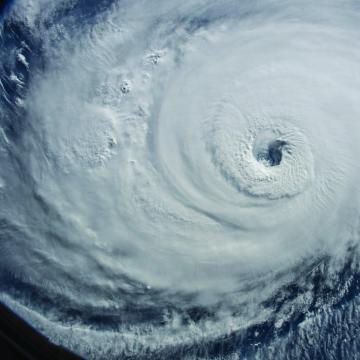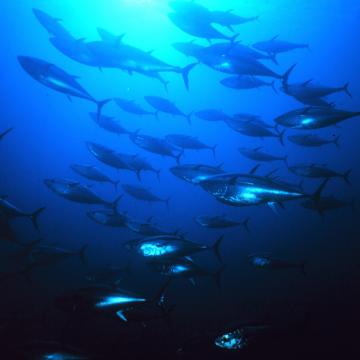-
NewsNew research reveals western North American forests may be less able than eastern forests to regenerate following large-scale diebacks linked to climate change. Over time, this could dramatically alter the continent’s landscape.
-
NewsGroundwater depletion in parts of the High Plains is so extreme that peak grain production in some states has ended and production is now declining, a new Duke University-led study by a team of international scientists finds.
-
NewsScientists at Duke University are harnessing the power of big data and geospatial analysis to create new ways to track the effects of climate change on species and food webs.
-
NewsHigh-intensity fires can destroy peat bogs and cause them to emit huge amounts of their stored carbon into the atmosphere as greenhouse gases, but a new Duke University study finds low-severity fires spark the opposite outcome.
-
NewsMegan Mullin, associate professor of environmental politics at Duke University’s Nicholas School of the Environment, has been named a 2020 Andrew Carnegie Fellow. She is one of 27 scholars selected from more than 300 nominations this year for the prestigious fellowship.
-
NewsAs droughts become more frequent and intense, the fragmentation of water service in the U.S. leaves many households vulnerable to water contamination or loss of service.
-
NewsPollution declines from pandemic shutdowns may aid in answering long-standing questions about how aerosols influence climate.
-
NewsThere is a huge amount of crucial work to be done to mitigate the worst possible outcomes of increasing drought, writes environmental politics researcher Megan Mullin.
-
NewsGlobal methane levels have hit an all-time high after what appears to be a near-record yearly atmospheric increase in the potent greenhouse gas.
-
NewsNew NOAA analysis highlights an alarming trend; experts call for curbing pollution from oil and gas wells
-
NewsReforestation has been shown to cool surface temperatures, and a novel study suggests it may also reduce air temperature up to several stories above the ground.
-
NewsScientists have devised a simple new model that explains how the undesirable effects of urban heat islands vary across seasons. Their results could help cities in different climatic regions design heat mitigation strategies.
-
NewsThe North Carolina Climate Science Report benefits from the scientific expertise of two Nicholas School of the Environment faculty members.
-
NewsA team of students from the Nicholas School of the Environment and Pratt School of Engineering has been working for more than a year to create a single digital map of the service boundaries of North Carolina’s drinking water systems.
-
NewsThe ratio of carbon isotopes in three common species of tuna has changed substantially since 2000, suggesting major shifts are taking place in phytoplankton populations that form the base of the ocean’s food web, a new international study finds.









